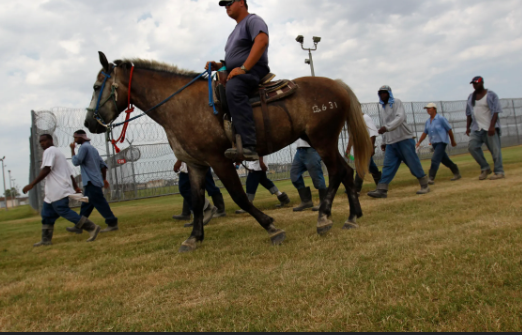A federal judge has mandated that Louisiana take action to safeguard the health and well-being of prisoners laboring on the old slave plantation’s fields.
A federal judge ruled in the sweltering heat of July that Louisiana must take precautions for the health and safety of prisoners laboring in the fields of a historic plantation, citing the “substantial risk of injury or death” that they suffer. The state filed an appeal of the ruling right away.
With the temporary restraining order that U.S. District Judge Brian Jackson granted on Tuesday, the state department of prisons has seven days to submit a plan outlining improvements to the circumstances on the so-called farm line at Louisiana State Penitentiary, also referred to as Angola.

Louisiana
Jackson demanded that the state alter its heat-related regulations. He cited issues like as insufficient shade, insufficient breaks from work, and the denial of basic safety measures like sunscreen and medical examinations for inmates who are particularly susceptible to extreme heat. The plaintiffs had asked that the court completely close the farm line when heat indices hit 88 degrees Fahrenheit (31.1 degrees Celsius), but the judge refrained from doing so.
The directive is issued at a time when prison labor, a practice with roots in slavery that has grown over decades into a multimillion dollar business, is receiving increased national attention. Angola and other prison farms, where imprisoned workers are paid pennies an hour or nothing at all, are connected to the supply lines of some of the biggest and most well-known firms in the world, including Walmart and Burger King, according to a two-year investigation by the Associated Press. Many businesses, like Cargill, have now said that they have severed their connections with prison farms or businesses that employ prisoners as labor, or that they are in the process of doing so.

Louisiana
A class-action lawsuit was filed last year by a number of men serving time at Angola along with the advocacy group Voice of the Experienced (VOTE) out of New Orleans. The lawsuit claimed that the maximum security prison, which was formerly an 18,000-acre slave plantation, subjected its inmates to cruel and unusual punishment as well as forced labor in its fields. The workers, the most of whom are Black, claimed that as armed guards watch, they manually harvest crops in dangerously hot weather using hoes and shovels or by bending over. Discipline guidelines state that they may be placed in solitary confinement or face other penalties if they refuse to work or don’t reach quotas.

In his 78-page order, Jackson stated that “dealing with the heat in Louisiana has become a matter of life and death” as temperatures throughout the state continue to rise. The farm line’s conditions “create a substantial risk of injury or death.”
The plaintiffs’ attorney, Lydia Wright of The Promise of Justice Initiative, praised the ruling.
It is the first time a court has determined that the practice there constitutes cruel and unusual punishment. “The farm line has caused physical and psychological harm for generations,” she told the AP. “This is a remarkable time for those behind bars and their loved ones.”

According to spokesperson Ken Pastorick, the Department of Public Safety and Corrections in Louisiana “strongly disagrees” with the court’s decision in its entirety and has filed an appeal with the 5th Circuit Court of Appeals.

Also read: July 4th: A Guide For People Taking Care Of Alzheimer’s Patients
images source: Google
Disclaimer: The opinions and suggestions expressed in this article are solely those of the individual analysts. These are not the opinions of HNN. For more, please consult with your doctor




































